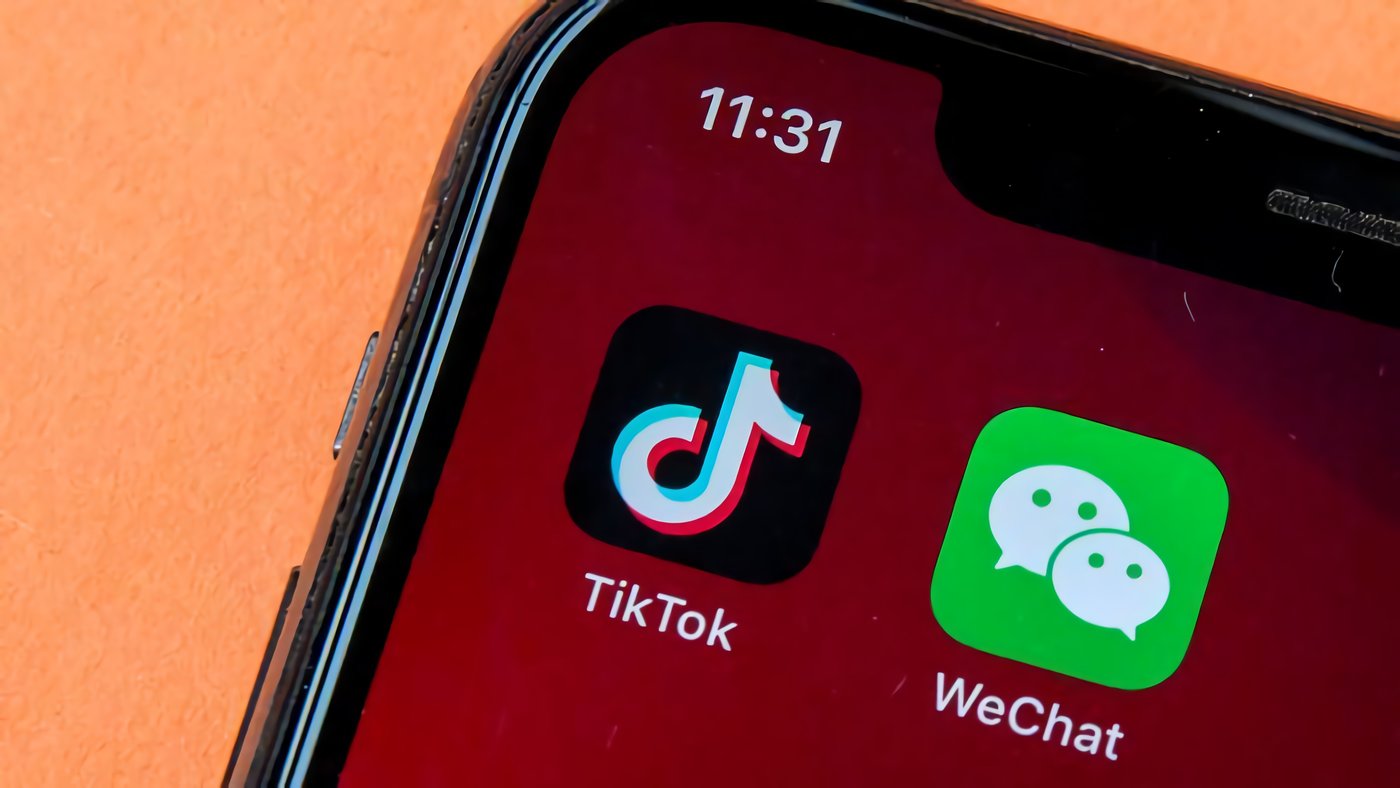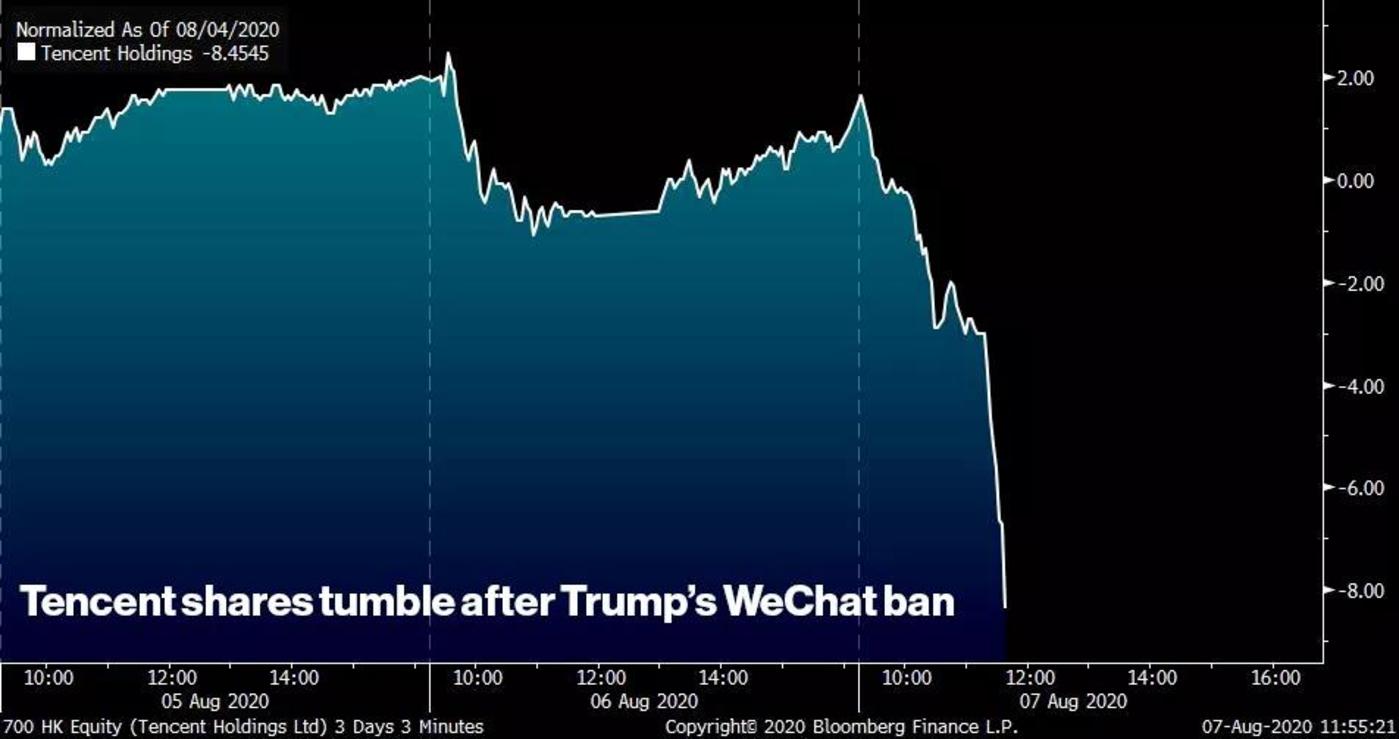Vague Bans Threaten to Burn Informal China-U.S. Bridge

Credit: TMTPost
By Huixia Sun
When U.S. President Donald Trump took a swipe at the viral video-sharing app TikTok in late July, Linda Lin, a Chinese immigrant in New Jersey, read it as a piece of routine news. Lin, a former journalist in China, does not use TikTok although her teenage daughter spends a lot of time browsing it.
However, when Trump signed an executive order last Thursday to prohibit any U.S individual or entity from having transactions with the owner of WeChat beginning in 45 days, in tandem with a similar ban on Tiktok, Lin realized her day-to-day normal life might be disrupted.
Almost all her Chinese friends in the United States were scrambling to post their new contacts in other messaging apps such as Dubai-based Russian engineers-developed app Telegram in case the Chinese-owned app is gone by late September. For years, Chinese Americans have relied on WeChat to communicate with each other and their relatives in China. WeChat messages or voice calls have replaced phone calls.
“It seems that we will go back to the Stone Age,” said Lin. “I will probably have to spend lots of money making international calls to my parents if free WeChat voice calls no longer exist. My parents have no way to use Telegram or any other foreign apps.”
Lin’s daughter Lisa Lu has been keeping in touch with her kindergarten friends in China through WeChat. She also follows current affairs and TV shows in China through WeChat and TikTok, which had 30 million monthly active U.S. users as of May 2020.
Lin was dismayed by the spillover of geopolitical tensions between China and the United States into the life of ordinary people. “We suffer as the collateral damage of the hostilities between the two governments,” she lamented.
Like Lin and Lu, about 1.48 million diaspora Chinese in the United States see WeChat as a lifeline. Nearly 300,000 WeChat users are Chinese students on U.S. campuses while the majority are the Chinese who live or work in the world’s largest economy. WeChat is the indispensible tool for them to connect with their families in China. Americans who do business with Chinese partners will also bear the brunt of the ban.
Waiting for The Other Shoe to Drop
The two bans did not come without fanfare. The Department of Homeland Security, Transportation Security Administration and the U.S. Armed Forces have already banned the use of TikTok on government-supplied work phones. On July 31, Trump told reporters aboard Air Force One he would move to prohibit TikTok from operating in the United States.
On August 5, U.S. Secretary of State Mike Pompeo announced that the government wanted to remove “untrusted” Chinese apps from the U.S. app stores, introducing a new concept -- “Clean Network”, which basically means a telecommunications network free of Chinese apps, Chinese carriers and Chinese cloud services.
“With parent companies based in China, apps like TikTok and WeChat and others, are significant threats to personal data of American citizens, ” Pompeo said during a press briefing.
Aggressive measures will be taken to prevent sensitive U.S. personal and business information from being stored in cloud-based systems accessible to “our foreign adversaries through companies such as Alibaba, Baidu and Tecent,” said the U.S. top diplomat.
Although the bans, citing reported threats to national security, foreign policy and economy of the United States, did not come as a surprise, they brought as much confusion as panic with regard to their scope and effect.
The bans are all encompassing given their definition of the term “person”. Any United States citizen, permanent resident alien, entity organized under the laws of the United States or any jurisdiction within the United States (including foreign branches), or any person in the United States are subject to the executive orders.
The orders also specify what an entity refers to. “A government or instrumentality of such government, partnership, association, trust, joint venture, corporation, group, subgroup, or other organization, including an international organization,” both orders says, using exactly the same wording.
Despite its all-inclusive scope, the key term “transaction” will not be defined until 45 days after the date of the orders by the U.S. Secretary of Commerce, which leaves Trump considerable policy latitude within one month and a half.
Gao Xibai, an attorney licensed in New York State, thought that the U.S. operations of Tencent, the owner of WeChat, may be restricted. “They may have a problem in renting an office or even hire an employee on U.S. soil. They can not operate in the 'clouds' because even 'clouds' must live on a server,” he said. But he argued that the use of WeChat is not likely to be prohibited if the Executive Order is understood in the constitutional way.
“The Executive Orders used the term “reportedly” to justify the bans, which is very unusual,” said Gao. “An investigation led by the Department of Justice shall precede a ban.”
Many analysts believe the bans are mainly Trump’s ploys to show he is tougher on China than Joe Biden, the Democratic presidential candidate, as presidential elections are just a few months away.
Gao stressed that the United States was not India, which had banned dozens of Chinese apps in the wake of the bloody China-India border clashes earlier this year. “American citizens have constitutional rights,” he argued. “The Executive Orders say ‘to the extent permitted under the laws of the United States’,” he added.
However, the U.S. president has the authority to act in the interest of national security, argued Liu Chiu Ti, a former partner in a NYC law firm. “The executive order not only bans any transaction involving fund transfers, but also the downloads of WeChat in iPhone and Google app stores. The transaction may include the use of the app itself,” she added.
Responses from ByteDance and Tencent
ByteDance, the owner of TikTok, will file a federal lawsuit in California, where TikTok’s U.S. operations are based, as early as Tuesday, NPR reported quoting a person who was involved in the forthcoming litigation.
ByteDance will argue that Trump's action is unconstitutional because it failed to give the company a chance to respond. It also claims that the “national security” risks cited in the order are based on pure speculation and conjecture, according to the source.
In addition to the legal fight, ByteDance has been considering selling its U.S. operations to Microsoft or Twitter. On the news of a potential TikTok sale, the shares of ByteDance soared.
Tencent released a statement in response to the executive order targeting it on the night of August 7. “The Company is assessing the potential impact of the executive order on the company. We are going to make another statement at the appropriate time,” according to the statement.

Credit: TMTPost
Tecent’s stocks closed nearly 5% lower last Friday, implying the company lost 250 billion HK$ (about RMB225 billion) in its market capitalization.
Unlike Lin, TikTok or WeChat users in China seem to be free from the clout of the executive orders. But as Apple or Google may be required to remove WeChat from their devices or operating systems pursuant to the orders, they may also face a tough choice.
In a survey launched on Xueqiu, an online Chinese community of investors, about 95% of the respondents selected WeChat and scrapped iPhones in response to a hypothetical situation where WeChat is banned on all iPhones.
After all, for an overwhelming majority of Chinese consumers, WeChat is not just an instant messaging or social media app. It is also an office tool for coworkers to share documents, a wallet to pay cellphone bills or buy clothes online or vegetables from a hawker across the street corner. But iPhones can be replaced by high-end Huawei or Samsung smartphones.
更多精彩内容,关注钛媒体微信号(ID:taimeiti),或者下载钛媒体App


